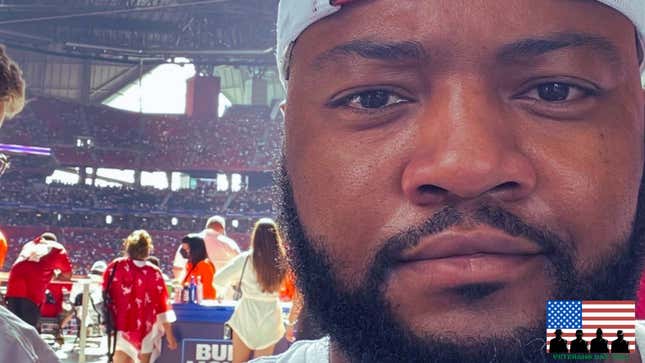
This Veterans Day 2021, in honor of and thanks for the service of so many Black Veterans, former service-members share their thoughts and perspectives on their time in the military and the aftermath.
The night I walked into my parent’s room and told them I was leaving for the Army is permanently etched into my brain. A look of fear crossed my mother’s face that I’d never seen before. My father sat quietly in the corner, a look of concern and what can only be described as utter disappointment on his face. I still remember his final words to me before I left for basic training: “Try as hard as you can to remember who you are. Make sure you use everything they give you or they’ll take everything from you…”
I am a third generation Black veteran. My father is a Vietnam veteran with two Purple Hearts. My grandfather fought in World War II. Growing up, I saw them as two larger-than-life figures that were very strong, very serious men. In their own way, each of them continued their lives as warriors after they left the Army. My grandfather would fight to build, grow, and maintain his businesses in the Jim Crow South. My father would spend 20 years battling employment discrimination as an investigator. They both instilled in me a fighting spirit that led me to all sorts of activism in my youth and college years.
Growing up, my mom would always tell me, “Don’t stand next to your daddy when you wake him up.” That’s now something I’m certain my daughter has been told about me. They didn’t have a scientific name for our reactions, anxiety, and hyper-vigilance when my father and his father returned home from service. What the folks in my neighborhood once called being “shell-shocked” we now call Post Traumatic Stress Disorder.
I was always told that Black folks go to church, not therapy. I used to believe that until one frigid night in late 2014…
I was fresh out of the military and struggling with the lack of purpose and structure that many veterans feel when transitioning. I sat in a nearby restaurant at the bar, still in my suit from work, drinking incessantly and trying to make sense of life. A woman at the end of the bar said something about the war in Afghanistan. As I began listening more intently to what she was saying, I found myself getting angrier. While I don’t remember everything that I said that night, I do remember a police officer telling me, “Hey man, I agree with you…but you gotta go. I can’t let you do that.” I tossed my debit card on the bar and walked out.
The temperature was below 40 and dropping. My apartment was 6 blocks away. I’d left my coat in the bar along with that debit card. I didn’t care. I couldn’t feel the wind whipping against my bare neck and cutting through the thin suit I was wearing. I was angry and alone. As I walked across a bridge overlooking the freeway below, my phone rang. It was my friend Jessica, a fellow Black veteran.
“Hey man, something told me to call and check on you,” she said. I responded, “I’m straight, what’s up?” She said, “You’re lying, I can hear it.”
She was right. Something was different. I was drinking morning, noon, and night. My temper was quick and explosive. I was out of control. I’d even exposed my children to the rage that simmered deep down within me.
For the first time ever in my life, I admitted what I’d known for quite a while, “I’m not OK…” In that moment, I finally understood my father’s words.
Growing up as a Black man, you’re taught to swallow your emotions; it’s not cool to show anything other than a tough, stoic face, lest you be labeled “soft” or “weak.” In the military, you’re taught to push through pain and ignore what hurts to accomplish the mission. In essence, I was prepared to be a soldier long before I took an oath of enlistment. The culture of emotional silence that engulfs us as Black men often kills us as Black veterans.
Luckily, I’m not a cautionary tale…anymore. I spiraled for quite a while before I got the help I needed. As our community begins to awaken to the benefits of mental health counseling and therapy, I often wonder where my father would be if he’d been able to get help facing the demons that followed him back from Vietnam. I guess I’ll have to show him…
I’ve spent nearly ten years trying to regain a semblance of the pride and honor I felt while serving with my brothers and sisters in arms. To my fellow veterans, whether you feel as though you need to or not, talk to someone. Sit down with a professional counselor and get your mind prepared for the next part of your journey. Plan your exit strategy and have a backup plan. Connect with the Veterans Administration and mental health counselors early, before you get out, if you can. Never ever forget that you are a soldier, but you’re a human first. Be strong, be healthy, and be whole. Hooah.



